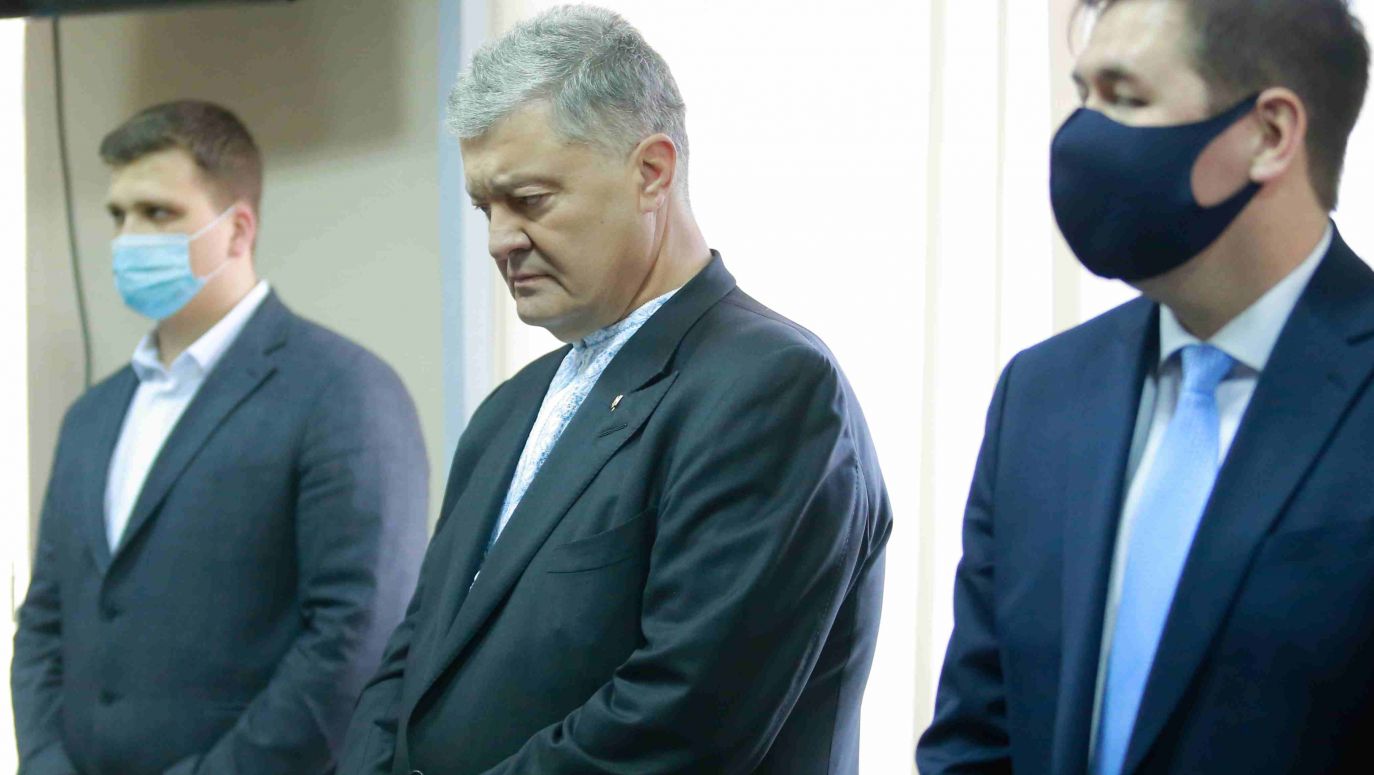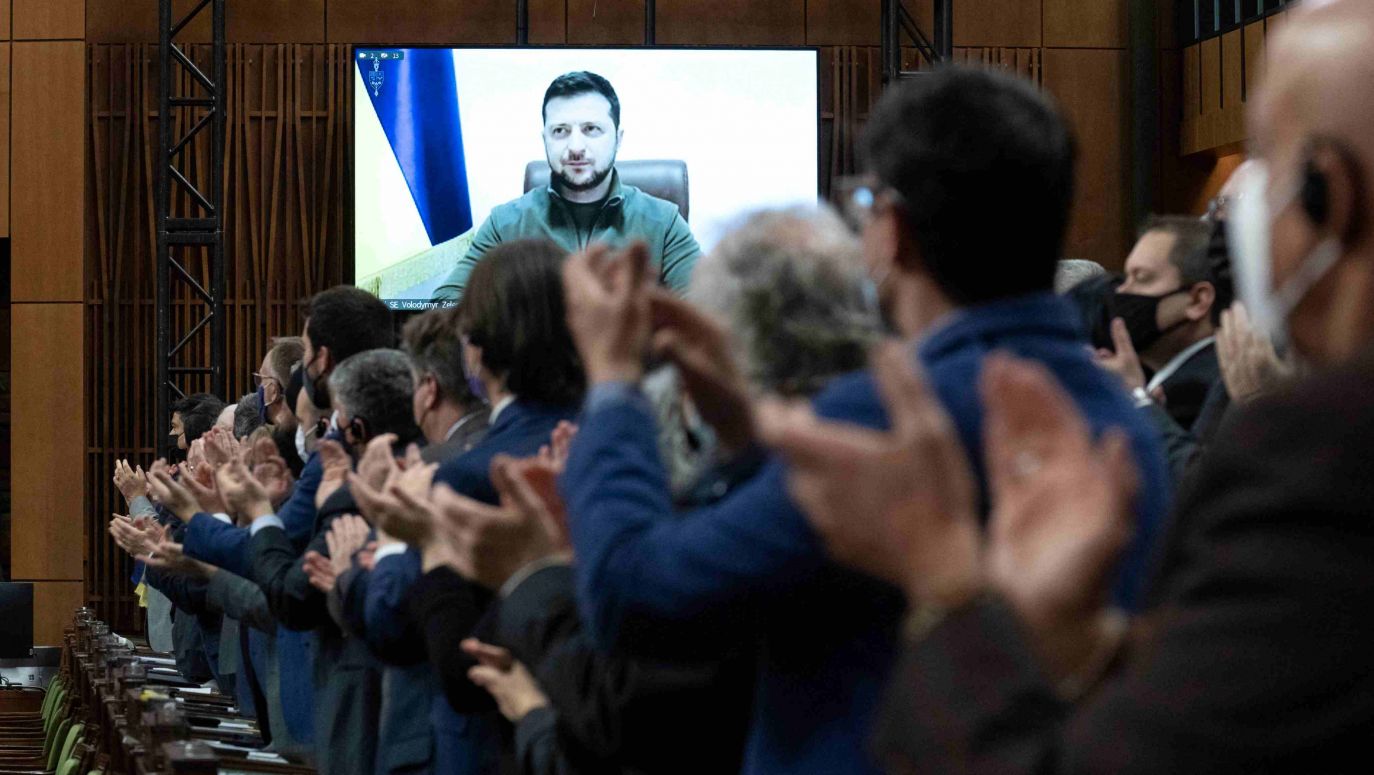No blind admiration. Volodymyr Zelenskyy under the eyes of his compatriots
24.08.2022
Zelenskyy’s conduct didn’t arouse so much admiration in Ukraine as it did in the West. Voices have risen that after all to stay in Kyiv was his duty as president – it’s not surprising then that he does his job. On the other hand Zelenskyy’s metamorphosis as a politician is obvious.
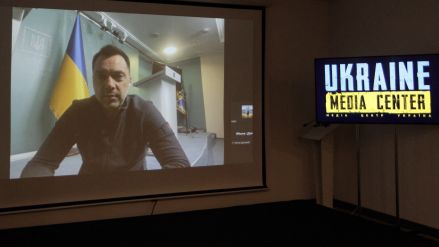
One of the most important Ukrainian commanders on the propaganda front.
see more
Three years ago when Zelenskyy was elected head of state, the society was unanimous towards him. In the election he scored a landslide victory receiving over 70% of the vote but the vivid debate between his adherents and opponents may be compared with the one taking place in Poland over the ruling party (PiS – “Prawo i Sprawiedliwość” – “Law and Justice”).
He was criticized especially for his insufficient pro-Ukrainianness. Zelenskyy has never been pro-Russian – as a matter of fact, he organized his election campaign around issues being remote from the ideological sphere and related to the broadly understood standard of living: raising the minimum wage, infrastructure initiatives, tariffs for communal services, etc. Everything in opposition to his predecessor in the office, Petro Poroshenko who had built his personal “presidential brand” on the slogan “one army, one language, one faith”.
Thanks to a certain “blurring” of his electoral programme, Zelenskyy was able to reach a large group of voters. Since he didn’t focus too much on the struggles in the East and wasn’t so determined as Poroshenko, he managed to win over a large part of the pro-Russian electorate. And that in turn caused a great deal of voters from among the active, patriotic part of the society to turn away from him – they feared that the clash with Russia and the necessity to carry out the reforms necessary for rapprochement with the EU would be pushed into the background.
In those years, the conflict in the east of the country also began to fade in the media. During the meetings in Minsk, mediated by the West, the parties repeatedly tried to conclude a truce in Donbas. Each time it was to consist in the fact that both the Ukrainian army and the pro-Russian fighters were to withdraw their troops from the demarcation line and observe the ceasefire. In practice, the separatists constantly broke these arrangements – for example, they would open fire, launching heavy cannon shells that were supposed to be removed from the fighting area as such, they did not withdraw heavy weapons, etc. The last ceasefire agreement before the war broke out in February was concluded in July 2020. It lasted the longest of all – but that didn’t mean that the losses among the Ukrainian soldiers came to an end.
During the election campaign, Zelenskyy said: “first of all, we need to cease fire. We just have to stop shooting” (this phrase even became an Internet meme). Later it turned out that it doesn’t work that way.
Pro-state evolution
In the first years of Zelenskyy’s presidency, there were several serious reshuffles in the government, and his political party “Servant of the People” (“Sluha Narodu”) won a majority in parliament in the early elections.
Zelenskyy’s administration got embroiled in a scandal over the deputy head of the President’s Office, Oleh Tatarov who became a suspect in a criminal case initiated by the National Anti-Corruption Bureau.
Recent years have also seen attempts to revive the Constitutional Court of Ukraine – Zelenskyy canceled the decree of the escaped president Viktor Yanukovych appointing Oleksandr Tupycki as the chairman of this court (who by his own decisions actually blocked anti-corruption reforms in Ukraine, undermining the provisions of the law regarding the control of officials’ property declarations), also participant in a criminal case. This was accompanied by mass demonstrations by Ukrainians who demanded that the judicial system be repaired and that corruption be eliminated.
In addition, Zelenskyy’s team carried out infrastructure projects: the “Great construction” programme (road repair & construction) building kindergartens, schools, construction of the medical-diagnostic complex of Ukraine’s largest specialized children's hospital “Ohmatdyt”, etc.
But the criminal cases initiated by Zelenskyy's people against the former president, Petro Poroshenko were of special importance.
At the beginning of his presidency, Zelenskyy, as a person without proper experience, was undoubtedly a naive politician, easily influenced by various forces, especially when he tried to maintain the support of his electorate. However, gradually, his position – especially on the issues concerning the conflict between Russia and Ukraine – was becoming more and more pro-state and decisive. In 2019 in the New Year’s address he said that “no matter what the street is called, if it is lit and paved”, but already in 2021 he devoted a large part of his speech to the issues of occupied Crimea, the war in Donbass or the evacuation from Afghanistan, etc. At that time, Russian troops were already grouping around the borders of Ukraine.
Work being done well
“Russia has carried out military attacks on military infrastructure and border troops; explosions are heard in many cities in Ukraine, we are introducing martial law on the entire territory of our country. We are working, the army is working, the entire security and defense sector of Ukraine is operational” – these were Zelensky’s words to the Ukrainians in the early morning of February 24, when Russia launched a massive shelling on Ukrainian territory.
With the beginning of the Russian aggression, it became clear that the features that had not previously been Zelensky's advantages turned out to be very useful under the new circumstances. It can be said that the image of a ”young and poorly educated politician” internationally worked to his advantage: despite his lack of experience, he remained with the nation and became the embodiment of his country being as young as he is and having fewer resources than the aggressor, yet effectively defying Russia.
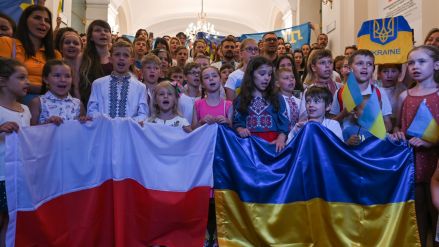
We have a common interest: to count in Europe and the world as a political entity of eighty million people.
see more
The acting experience, which was previously not his advantage in the eyes of his opponents, has now become an advantage – Zelenskyy's appearances in Western countries, including speeches addressed to the societies of various countries, are an important part of the campaign to support Ukraine. He's doing the job well.
Generally speaking, Zelenskyy’s conduct in the first days and weeks of the war, admired in the West, also turned out to be very beneficial for the Ukrainian society. Perhaps it didn’t arouse so much admiration in Ukraine as it did in the West. Voices have risen that after all to stay in Kyiv was his duty as president – it’s not surprising then that he is doing his job. On the other hand Zelenskyy’s metamorphosis as a politician is obvious and significant for Ukrainians who remembered the president from the time of the election campaign and taking office.
To some extent, he became incarnation of the transformations of a large part of the Ukrainian society: people born and raised in the USSR, for whom the affairs of the state were certainly not the most important ones. But it is these people who are helping the army today, finally recognizing Russia’s imperial role in Ukrainian history. For many Ukrainians, Russian aggression has indeed become the catalyst for these processes, and the society is much more united.
These changes occur not under the influence of Zelenskyy but due to historical events – nevertheless, his role as a representative of the state is also important.
There is certainly no blind admiration for Zelenskyy in Ukraine; After all, A certain mistrust of the authorities has become tradition in Ukraine and every president since 1991 contended with it. The extreme (and positive) side of this feature is the ability of Ukrainians to self-organize, which manifests itself perfectly during crisis and is also helpful now. The other side of the coin is what Ukrainians jokingly call “seeking treason”: there is a tendency to constantly expect changes for the worse, which manifests itself in a certain social vigilance.
If we are talking about purely military matters, for Ukrainians, it is not Zelenskyy to be number one, but the Supreme Commander of the Armed Forces of Ukraine, Valeryy Zaluzhny. He is, to a lesser extent, a public figure, but his successful opposition to Russia on the battlefield is primarily due to his merit and thus enjoys great trust and support in society.
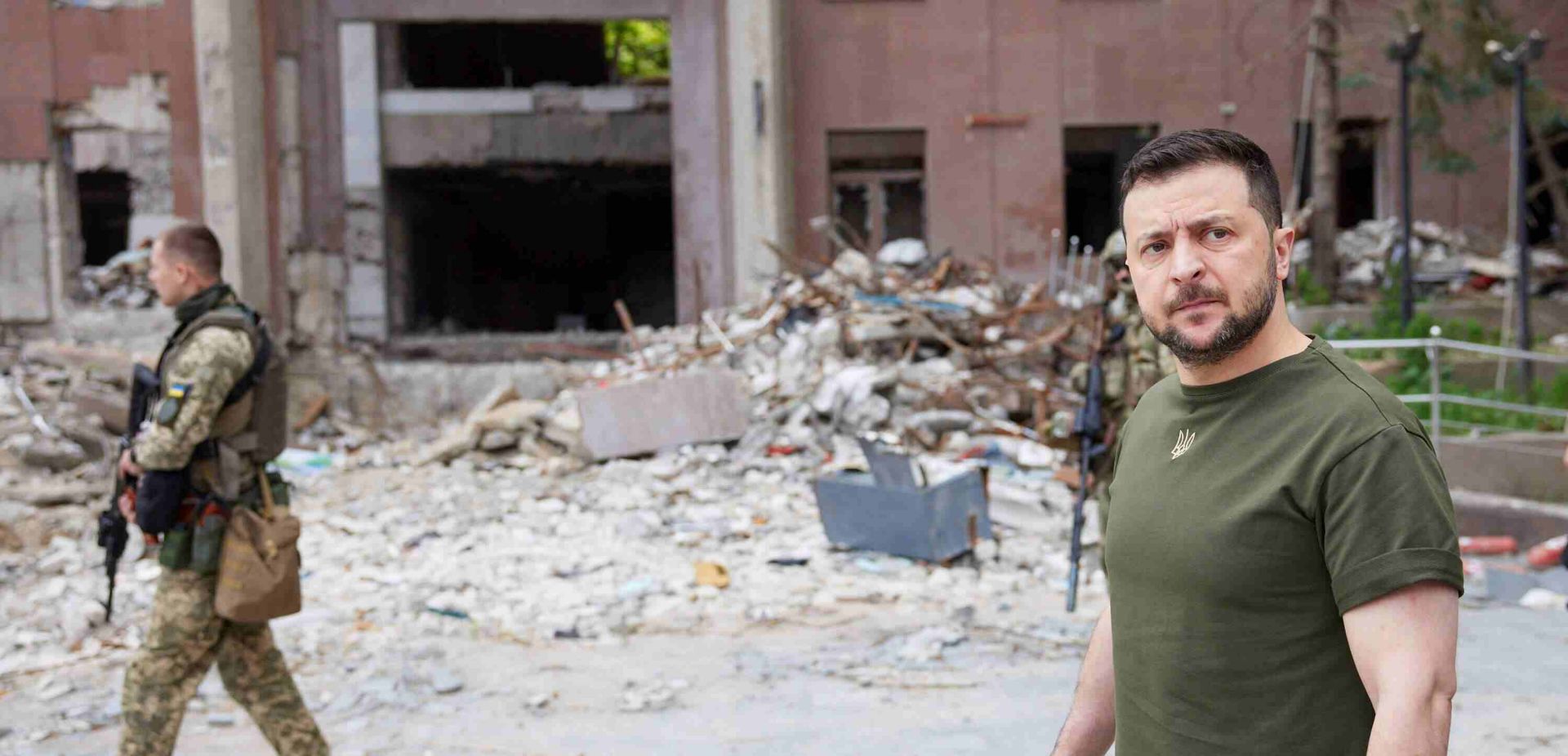
 SIGN UP TO OUR PAGE
SIGN UP TO OUR PAGE
 And how is Zelenskyy perceived by the Ukrainian society which he stayed during this war with? Undoubtedly his popularity is at its peak as referred to the whole term. However, to understand what Ukrainians think about their head of state and why they think specifically like this we need to examine his political transformation. Which has occurred under the pressure of a civil society.
And how is Zelenskyy perceived by the Ukrainian society which he stayed during this war with? Undoubtedly his popularity is at its peak as referred to the whole term. However, to understand what Ukrainians think about their head of state and why they think specifically like this we need to examine his political transformation. Which has occurred under the pressure of a civil society.
